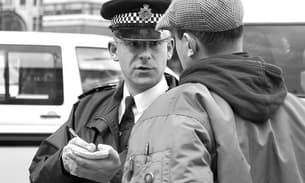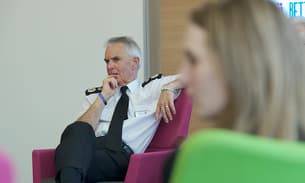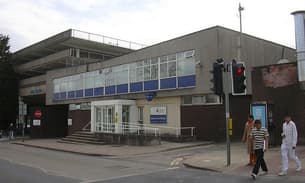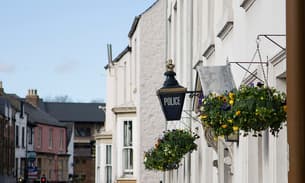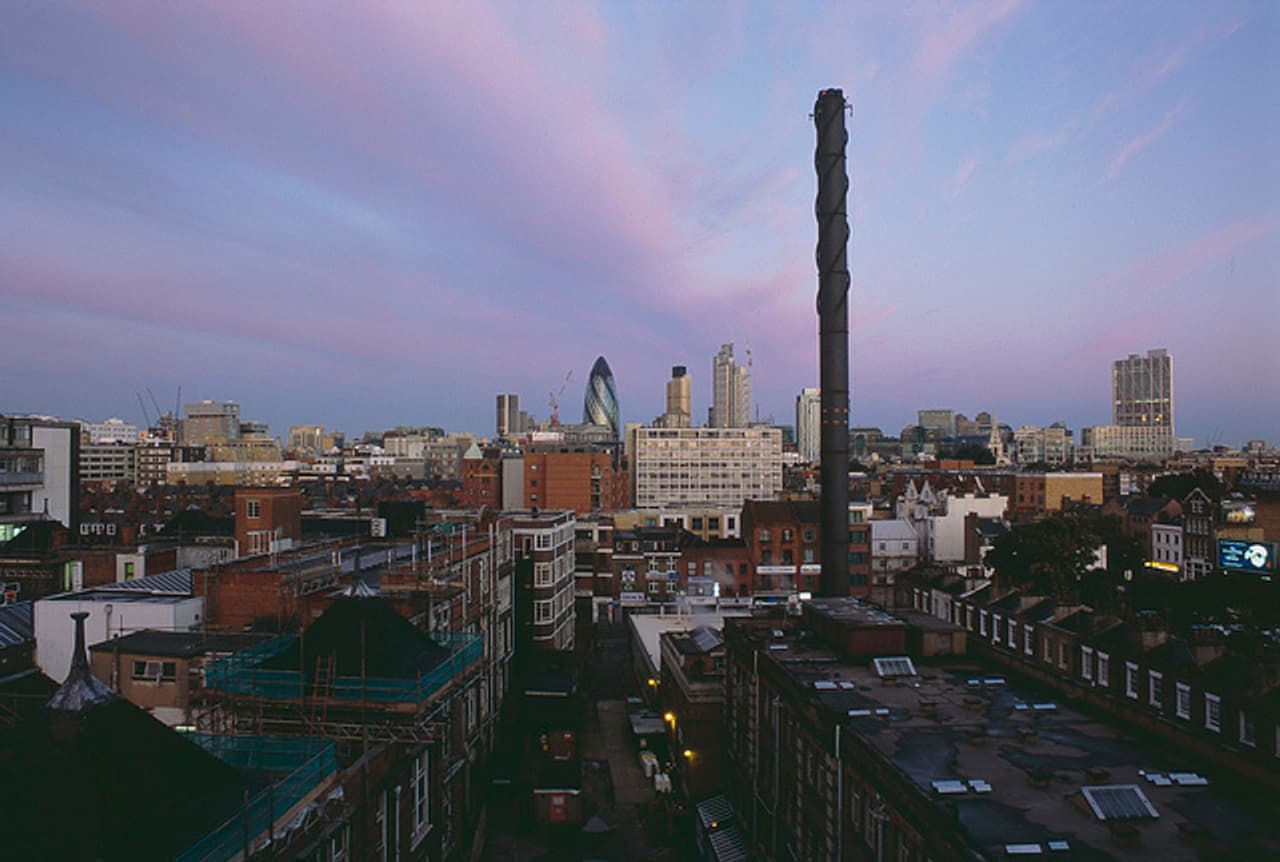
NHS “covered up” scandal at flagship centre for rape victims
Morning in Whitechapel by Richard Fisher at Flickr
The NHS was last night accused of supressing findings of catastrophic failings at a pioneering centre for rape victims.
A confidential report, obtained by the Bureau of Investigative Journalism, found fundamental forensic protocols were routinely breached at the centre in London, which was set up to provide a “gold standard” in specialist support for rape victims and improve conviction rates.
Dozens of samples taken from victims of sexual attacks that should have been sent for forensic analysis were discovered left in a fridge while there were “multiple deficiencies” in the unit’s dealings with children and vulnerable adults.
Staff at the unit described working in “an oppressive, tense environment” and told investigators that they dreaded their shifts but were afraid to complain to managers.
Disturbingly, the report concludes that many of the problems “echoed the underlying failures identified” as part of the inquiry into the Mid Staffordshire Hospital scandal.
“When it comes to rape, women are being failed again and again by the services that should be there to support them.” Baroness Jones, London Assembly member, Green Party
But until now, the report, commissioned by Barts Health NHS Trust into the “whole system failure” at the Whitechapel Haven, has never been made public – despite the unit’s temporary closure as a result of the problems that first came to light last year.
Related story: Forensic examinations of rape victims plummet in London
Last night Barts, which ran the Whitechapel centre, apologised for the “inexcusable failings” that had come to light but insisted it had not attempted to hide the problems identified in the report.
But Liz Kendall, Labour’s Shadow Care Minister, said: “The women who have been affected have a right to know who is responsible for the unacceptable failings at Whitechapel Haven and that they are properly held to account.
Complete transparency is also essential to ensure similar services for rape victims learn the lessons from what happened to make sure these appalling mistakes never happen again.”
Baroness Jones, London Assembly member for the Green Party and former Mayoral candidate, said she was “fobbed off” by the NHS and Metropolitan Police after asking questions about the closure of Whitechapel.
“The response I received when I raised this issue did not make clear in any way the scale of the problem, nor the consequences for the rape survivors,” she said.
The failure to publish the report promptly gave the impression that “what had happened at Whitechapel was covered up”, she said.
“When it comes to rape, women are being failed again and again by the services that should be there to support them.”
Widespread inadequacies
Whitechapel is one of three specialist rape centres in the capital, known as the Havens. It was established in 2004 to be a “one stop shop” where women can be seen by specialist doctors, receive treatment for injuries and emergency contraception if necessary while also being referred for counselling and other support.
The centre is jointly funded by the NHS and the Metropolitan Police Service – who refer women to the centre for specialist support and rely upon it to collect forensic samples for use in potential prosecutions.
The NHS investigation, which was completed in April 2013, was launched following concerns about standards and practices at the unit.
It has never been published but a copy was given to the Bureau of Investigative Journalism following a Freedom of Information request.
The investigation reveals widespread inadequacies in collection and storage of forensic evidence collected from rape victims.
It found:
*Samples from 93 alleged rape victims had not been passed on to the police forensic service for analysis.
*The unit had a grubby examination suite that “did not meet the standards required in terms of a safe forensic area”.
*Criminal exhibits were stored in plastic bags – which can lead to deterioration of evidence – and contaminated clothing was mixed with clean items.
The report reveals that when two members of the investigation panel visited the Whitechapel centre to assess how the service was being run they found “a general air of grubbiness” with equipment overflowing from cupboards.
During an interview with two members of staff they were told: “you should have seen the suite before”.
Investigators also uncovered “multiple deficiencies” in the implementation of procedures for safeguarding children and vulnerable adults.
Related story: Revealed: Why the police are failing most rape victims
Concerns raised by the Department of Health, had not been acted on and were “treated in a dismissive manner”.
Inside the unit no-one was accountable for quality of patient care, with the lead clinician “either unable to take leadership or not suitably qualified or experienced to assume this role”.
“(A) picture of good clinical governance did not appear to exist in the Whitechapel Haven service,” they concluded.
“Nor did the investigation identify systems in place for dealing with poor performance.
“The service failed to identify and prioritise risks and as a result there was no mitigation in place to minimise both the likelihood and impact against failure of the service.
The report concluded that many of the problems identified at Whitechapel were the same as those identified by Robert Francis in his inquiry into what went wrong at Mid Staffordshire Hospital NHS Foundation Trust.
Staff dismissed
The centre, which was run until recently by Barts and the London NHS Trust, closed for four months in 2012 after initial discovery of the failings.
Since then it has reopened but with a reduced service. The centre still does not offer a 24/7 service, as it did before the crisis, and it no longer provides a children’s service. Responsibility for its management moved to King’s College Hospital NHS Foundation Trust in April this year.
An NHS England spokesman said that following the investigation, two members of staff had been dismissed.

Victims directly affected by the problems identified at Whitechapel have been contacted, he added.
“Immediate steps were taken to contact each [affected] client. They received a full apology and were invited to make an appointment with a trained counsellor to receive the results and continued support,” he said.
In a statement Barts Health NHS Trust said: “We are extremely sorry for the inexcusable failings at the Whitechapel Haven.”
The Trust had taken swift and immediate action as soon as the issue came to light in 2011 to ensure that all the affected samples were re-tested, the statement added.
“The former Trust – Barts and The London – also carried out a rigorous and urgent audit of all records held at The Haven in Whitechapel since its opening in 2004. As well as our own serious incident inquiry, we commissioned a separate, independent investigation in order to understand fully what led to this failure in care so that there could be no repetition.”
The statement said that the findings of these investigations had been shared with doctors at King’s College Hospital, which now runs the Havens service, and the report would be discussed at an NHS England meeting in 2014.
“The Trust has strived for transparency throughout and the independent investigation report commented on the diligence, honesty and openness of our staff in working together to discover and correct what had gone wrong.”
A statement from King’s College Hospital said that since taking over management of the Havens in April 2013, it had made improvements across the entire service. “This includes establishing new systems of governance to improve the auditing and management of samples.
“The Havens are a safe place for anyone who has been raped or sexually assaulted to get the help they need. The service is available to anyone who needs it 24 hours a day, seven days a week, 365 days a year.”
Background on the Havens The London Havens are specialist sexual assault referral centres in London. There are three Havens: at Whitechapel, Paddington and Camberwell. Since April 2013 King’s College Hospital NHS Foundation Trust has managed them all. The first one (Camberwell) was established in 2000 to reduce the time victims had to wait before a forensic medical examination could be provided and to be a ‘one stop shop’ where they could be seen by specialist doctors, receive treatment for injuries and emergency contraception if necessary while also being referred for counseling and other support. The Havens accept assault victims who have been attacked up to a year previously, though forensic evidence is only useful if gathered in a ‘forensic window’ considered to be up to 7 days after the attack. The three Havens cost £4.33m to run and are jointly commissioned by the Mayor’s Office for Policing and Crime (MOPAC)/Metropolitan Police and the NHS. The Met’s contribution for 2013/14 was reduced by £216,500 because of an under-spend resulting from the closure of Whitechapel in 2012/13. NHS England has to date failed to answer questions about whether or not it received a similar discount.
Referrals to the Havens plummeted in year of Whitechapel closure Data collected by the Bureau shows a dramatic drop in the number of people seen across the three Haven service in the year to April 2013. 370 fewer people attended one of the three Havens in 2012/13 than the year before – a 19% decrease. Numbers did not recover substantially over the summer of 2013. During the closure of the Whitechapel site, between March and July 2012, rape victims were expected to travel to one of the two other centres in Paddington and Camberwell as no alternative service in East London was provided.
2010/11
2011/12
2012/13
Haven clients
Forensic
1543
1493
1233
Forensic – police referral
1366
1279
1074
Non forensic
497
486
376
Total clients
2040
1979
1609
Haven forensic clients
Camberwell
Paddington
Whitechapel
Total
2011
486
577
481
1544
2012
471
643
196
1310
Jan-August 2013
271
428
156
855

